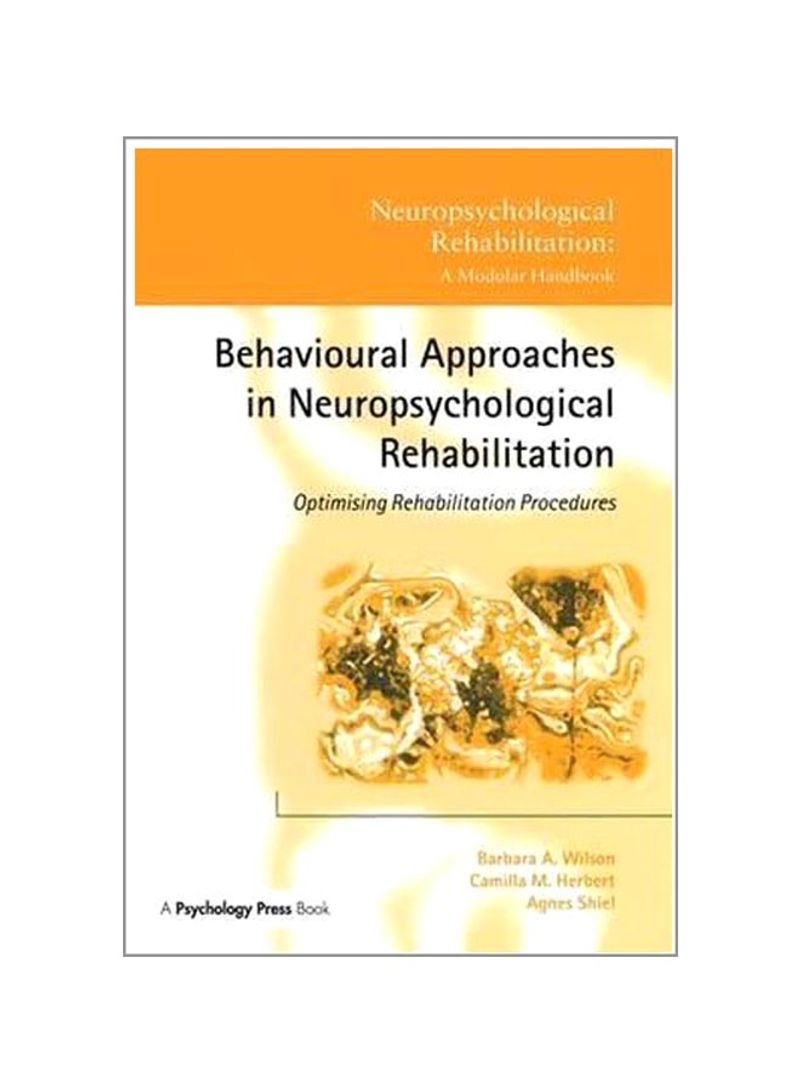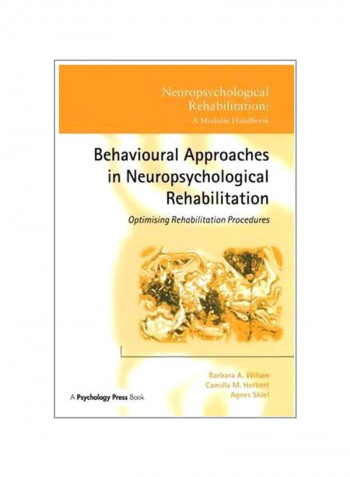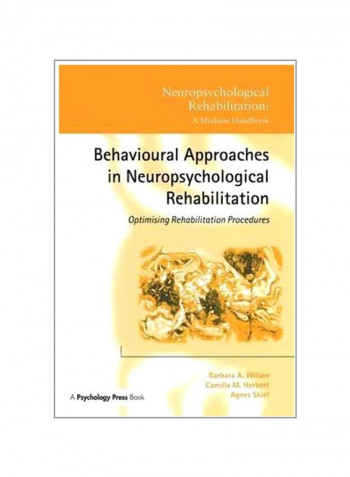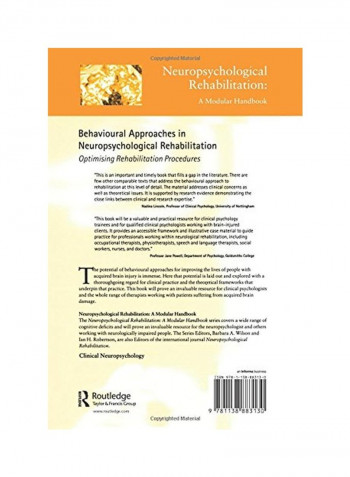Behavioural Approaches In Neuropsychological Rehabilitation Paperback
Recommend
Sort by
Rating
Date
Specifications
Country of Origin
India
Author 1
Barbara A. Wilson
Book Description
The potential of behavioural approaches for improving the lives of people with acquired brain injury is immense. Here that potential is laid out and explored with a thoroughgoing regard for clinical practice and the theoretical frameworks that underpin that practice. This book will prove an invaluable resource for clinical psychologists and the whole range of therapists working with patients suffering from acquired brain damage.
ISBN-10
1138883131
ISBN-13
9781138883130
Language
English
Publisher
Taylor & Francis Ltd
Publication Date
3-Mar-16
Number of Pages
160
About the Author
Barbara A. Wilson qualified as a clinical psychologist in 1977 and since 1979 she has worked in Brain Injury Rehabilitation, first at Rivermead Rehabilitation Centre in Oxford, then at Charing Cross Hospital, London and at The University of Southampton Medical School. Since 1990 she has been employed as a Senior Scientist at The Medical Research Council’s Cognition and Brain Sciences Unit, Cambridge.
Author 2
Camilla M. Herbert
Author 3
Agnes Sheil
Editorial Review
This is an important and timely book that fills a gap in the literature. There are few other comparable texts that address the behavioural approach to rehabilitation at this level of detail. The material addresses clinical concerns as well as theoretical issues. It is supported by research evidence demonstrating the close links between clinical and research expertise. - Nadina Lincoln, Professor of Clinical Psychology, University of Nottingham, UK "This book will be a valuable and practical resource for clinical psychology trainees and for qualified clinical psychologists working with brain-injured clients. It provides an accessible framework and illustrative case material to guide practice for professionals working with neurological rehabilitation, including occupational therapists, speech and language therapists, social workers, nurses and doctors." - Professor Jane Powell, Department of Psychology, Goldsmiths College, UK




